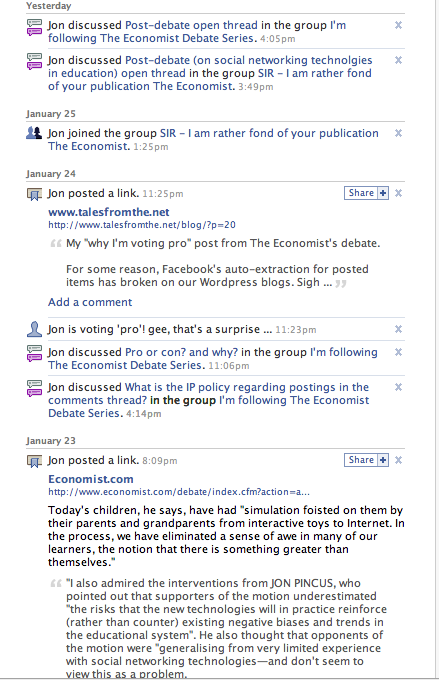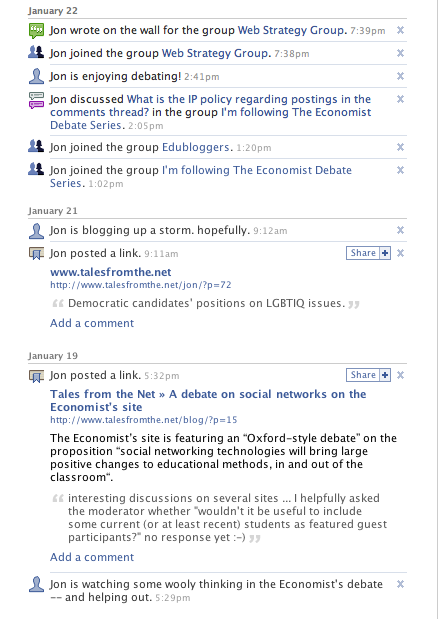From Moderator’s closing statement in The Economist’s debate on social networking technologies in education:
I also admired the interventions from JON PINCUS, who pointed out that supporters of the motion underestimated “the risks that the new technologies will in practice reinforce (rather than counter) existing negative biases and trends in the educational system”. He also thought that opponents of the motion were “generalising from very limited experience with social networking technologies—and don’t seem to view this as a problem.”
Both of these points strike me as useful, and true. I would only add that I suspect many supporters of the motion have been generalising from limited experience, too.
I don’t have a lot of experience with the Oxford Debate 2.0 format they’re using. Does this mean I get to say “hi mom”?
Update on 1/25: Instead of “hi Mom!”, I opted for a closing statement – munged, alas, on The Economist’s site by incompatible character sets. And the Moderator’s “winner announcement” further credits me with making “a fair point”, which I believe is considered high praise in this context:
JON PINCUS wonders where to find past posts from “featured participants”, including posts from previous debates. A fair point. They come and go, leaving no obvious trace, except on the Facebook group at http://www.facebook.com/group.php?gid=21114626408. Check there for guest comments on this debate from Parry Aftab, Judith Krug and Ann Flynn, each of whom did a great service by bringing sections of the discussions into sharp focus.
Looks like my point about the links being available on Facebook but not the site was too subtle:
This simultaneously illustrates the “pro†camp’s points about better information diffusion on social networking sites and the “con†sides concerns about technology in today’s context tending to favor privacy-invasive ad-funded corporate environments.
So … one more intervention: I put the links up on a wiki page, which also kicked off a new Educational networking section in the Education wiki Wikia.
Update on 1/31: when they closed down the participant comments, guess who wound up with at the top of the first page? And the bottom as well … it took me by surprise because they had said they were going to leave it open until February 1, but I guess it worked out okay.


Leave a Reply